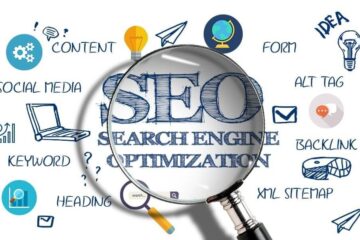SEARCH ENGINE OPTIMISATION: WHAT IS IT?

The acronym SEO stands for “search engine optimisation.” SEO, or search engine optimisation, is the act of making changes to your website to better position it when users search for:
- Things you market.
- Your services are offered.
- Details about subjects in which you have extensive knowledge and/or experience. Know more about SEO ireland
Your pages are more likely to be seen and clicked on the more visible they are in search results. The ultimate objective of search engine optimisation is to assist in attracting website visits that will convert into clients.
WHY IS SEO CRUCIAL?
An important marketing avenue is SEO. First and foremost, 53% of all website traffic comes from organic search. Every time a person wants to do something, go someplace, learn something, gather data, do research, or purchase a good or service, their journey usually starts with a search.
Another reason SEO is essential for brands and companies is that, in contrast to other marketing channels, effective SEO work is long-lasting. The traffic ceases to exist after a paid campaign. The cornerstone of holistic marketing, where everything your business does counts, is SEO.
- (Both sponsored and organic) campaigns.
- Material on a website.
- Societal media platforms.
The traffic you require to meet important business objectives is driven by SEO.
SEO TECHNIQUES
Three categories of SEO exist:
- Technical SEO
- On-site SEO
- Off-site SEO
Both content and technological optimisations remain entirely in your hands. Off-site activities are still an important component of this SEO trinity of success, even though that isn’t always the case.
TECHNICAL IMPROVEMENT
A website’s technical aspects must be optimised if SEO is to be successful. Building a website that search engines can crawl and index is the first step in the process.
You should make it simple for search engines to find and access all of the material on your sites. What technical details are important in this case: URL organisation, external and internal links, and more .
CONTENT IMPROVEMENT
Your content must be optimised for both humans and search engines if you want to succeed with SEO. This implies that you must optimise both the content that users will see and the code that search engines will read.
Always strive to provide helpful information.
When creating material that is people-friendly, you should:
- Covers pertinent subjects in which you are an expert or have experience.
- Include search-engine-friendly keywords in the material.
- Is original.
- Is well-written and devoid of spelling and grammar mistakes.
- Is current and accurate in its information.
- Consists of multimedia.
- Is superior to your SERP rivals.
- Can be read
OFF-SITE ENHANCEMENT
Even while certain actions fall beyond the purview of “SEO” in the strictest sense, they can nonetheless be aligned with and indirectly aid in SEO success. The activity most closely connected with off-site SEO is link building, which is the practice of obtaining links to a website. Having a variety of links pointing at your website from relevant, reliable, and trustworthy websites may have a positive impact on your website’s rankings and traffic.



















